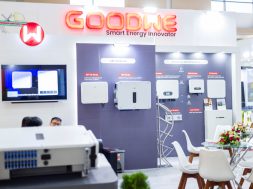
DGAD hearing:
Petitioners submitted their contentions that ADD should be levied due to foll. reasons:
1. The Landed price of module from the subjected countries are artificially lesser than the cost of module manufacturing in India.
2. After the last recommendation of ADD (which eventually was not notified by GOI), GOI promised to take care of Domestic Mfg. In the DCR tenders. However after the loss at WTO, DCR tenders have been discontinued. Thus, in absence of support in terms DCR tenders, it is required to protect Indian Manufacturers against dumping.
3. Inspite of the recent profit of petitioners they still do not reasonable profit of 22% as a result of dumping.
4. During the Period of investigation (POI), one of the petitioner i.e Jupiter Solar had imported cells of minuscule capacity (87kW). However that can be ignored.
5. The market share of domestic manufacturers is only 7% because of dumping.
6. Once ADD is levied, they will increase the capacity to match the demand.
Counter arguments by Foreign manufacturers and Importers:
1. The landed price of modules as compared to the prices of non-subjected countries are comparable. Hence, there is no dumping.
2. The claim of 22% as reasonable profit by petitioners are not maintainable as per proceedings of the ADD. Anyways, profitability of petitioners have increased from -80 to 35 as per index of 100 BPs.
3. The cost of module mfg in India has reduced from 100 BPs to 20 BPs from year 2013 to year 2017; whereas the sale price has reduced from 100 BPs to 85 BPs only, which is why Balance Sheets of petitioners have improved during the period as a result their EBIDTA has increased from 100 to 350, whereas PBT has increased from 100 to 250.
4. As per MNRE, there are about 115 Module Manufacturers and about 30 Cell Manufacturers in India corresponding to capacity of about 8GW and 3 GW respectively. Their PLF is about 87%.
5. Anyways, Cells and Modules are two different product and should not be clubbed together. Similarly, Multi crystalline and Thin Film are 2 different products and should not be treated similarly. This has also been endorsed by ADD proceedings in USA and EU.
6. Petitioners have claimed that only about 50 Module Manufacturers are present in India, which is not true and the combined market share of Petitioners is only about 7%, which is less than the threshold value of 25% as per the standing of the proceedings.
7. Even if the protection were to be given to Petitioners in terms of ADD, they will not be able to match asking rate of 15GW/year as per the NSM target.
8. The benefit of low module prices has been passed on to consumer by SPD(s) by offering lower tariffs which is not the case with Domestic manufacturers.
9. The open category tenders do not differentiate between domestic modules and imported modules. Thus, module transaction will entirely be dependent on market and economic factors rather than protection given in terms of ADD.
10. The DCR modules are inferior in terms of quality.
11. Government of Taiwan made statement that their export to India is only about 0.4%. Thus, they should be excluded from the ADD proceedings.
12. Government of China made statement that they have been cooperating with Indian authorities and ADD should be properly investigated and be levied only if there is a merit in it.
13. Government of Malaysia made statement that ADD would be a violation of Free Trade Agreement (FTA) between the countries.











